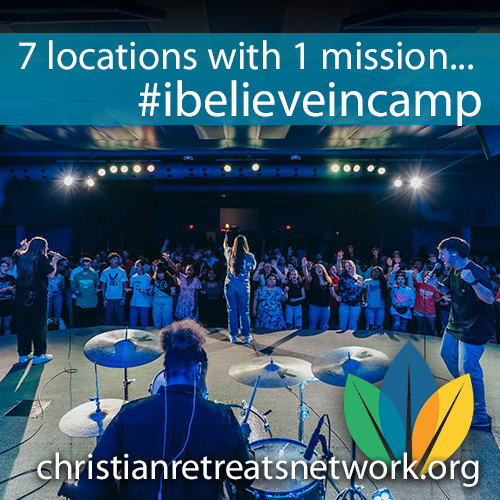African Americans have long been a part of the travel and tourism industry.
Since the days of the Negro Motorist Green Book, Black entrepreneurs have been helping guide, host and educate one another and travelers in the most innovative ways.
The following six Black entrepreneurs are continuing that legacy, building and operating businesses in the tourism industry.
Tia Clark, Casual Crabbing with Tia
Charleston, South Carolina
The name Casual Crabbing with Tia began as a joke. Tia Clark, the company’s owner, didn’t come up with the business name — a friend did. But Clark’s entrepreneurial journey has been no laughing matter.
In the Geechee culture of South Carolina, where Clark grew up, seafood was a big part of the local diet. Crabbing was always happening in Charleston, but Clark didn’t take the trip that would make her an entrepreneur until six years ago.
As a decades-long food-and-beverage veteran, Clark always had an entrepreneurial spirit and even had plans to open a cocktail bar before finding crabbing.
“This was never a thing in my head,” she said. “It took me doing this, physically being in it, living it, taking a chance and quitting my other job to really even start to feel like it was real.”
From behind the bar, she learned about Airbnb Experiences, the platform where she hosts “Let’s Go Crabbing.” Now she spends six days a week on the city’s docks hosting groups of 12 on shared experiences, as well as private experiences for groups of up to 50. Travelers learn the art of throwing a cast net, how to properly clean crabs and other methods used in crabbing.
For Clark, it’s important to use her growing business to connect more people, especially children and women, to the water. After being selected as one of 50 women from the fishing industry to attend a climate change conference in Seattle, she realized the role inaccessibility plays in our environment.
“I would like to create the space for women and kids, specifically, to go to and feel comfortable and build their bond with the water in any way they can,” Clark said.
Monique Greenwood, Akwaaba Inns
Brooklyn, New York
Monique Greenwood always knew she’d be an entrepreneur. Her grandfather started one of Washington D.C.’s oldest Black-owned businesses, a moving and storage company, in the 1970s, and now she is continuing her family’s entrepreneurial heirloom and the African American legacy of operating bed and breakfasts.
Akwaaba Inns began down the street from Greenwood’s home in the Bedford-Stuyvesant neighborhood of Brooklyn, which she has called home for decades, when in 1995, she purchased a rundown 1860s mansion. She fixed it up and opened its doors to travelers in hopes of showing the world a different side of the community she loves.
“Owning the B&Bs was a way to marry my life plan with a business plan,” Greenwood said. “I aspire to have a home I love in a city that I love for each season of the year.”
Operating B&Bs is not easy work. Nearly 30 years ago, when Greenwood began, her loved ones joked about how surprised they were she was an innkeeper. Greenwood couldn’t cook or clean when she started but had a knack for interior design and loved the idea of creating community and experiences for travelers in her favorite cities. Her love of people and understanding of real estate investment motivated her.
With locations in Philadelphia, Brooklyn and the Pennsylvania Poconos, Akwaaba, the Ghanaian word for welcome, creates an intimate experience that large hotel brands can’t duplicate. The Mansion on Noble Lane in the Poconos is a great option that can accommodate 34 people in14 guestrooms.
In Philadelphia, swanky suites named after Philly-bred music legends like Patti LaBelle and Teddy Pendergrass can sleep 20 people. Akwaaba Brooklyn, the smallest property, has just four guest rooms that sleep eight guests. There are also two glamping tents and an event space for intimate gatherings.
Greenwood incorporates Black culture into every location.
“We know that so many people of color aren’t treated like the kings and queens they are,” Greenwood said. “So when they come into our space, it’s a safe space.”
Jonathan Morris, Hotel Dryce
Fort Worth, Texas
Jonathan Morris, co-owner of Hotel Dryce, Fort Worth’s newest boutique hotel, was meant to be an entrepreneur. In grade school, he ran a business making homemade bookmarks, and in high school, rhinestone bandannas. As an adult, Morris spent years working in digital marketing before it was time to scratch his entrepreneurial itch again. It came to fruition in the form of the Fort Worth Barber Shop in 2014 — a staple in Funkytown’s community.
Now he’s curating the same beloved experience at Hotel Dryce. As a traveler, Morris enjoys staying at boutique hotels and is always searching for experiences like the one he’s building: authentic, locally inspired and with a sense of place. He said he felt there wasn’t yet an independent hotel space in Fort Worth that met the criteria, so he created one.
“If I can connect people who are coming through the city with people who are in and of the city and live and breathe the city, that to me is where there’s some magic that can happen,” Morris said.
Hotel Dryce is a 21-room hotel with a cozy lobby bar and an outdoor courtyard. For Morris, it’s essential to create a place locals and travelers want to be. He’s intentional about taking things beyond what typical hotels can offer by fostering a space that also serves as a community hub.
As an entrepreneur new to the tourism industry, Morris’ most significant challenge has been learning the ins and outs of the hotel business, mainly because it’s a 24/7 operation, something he wasn’t accustomed to with the barbershop. It’s a different sort of rhythm.
David Peters, Black Liberation Walking Tours
Oakland, California
A born hustler and a third-generation native of Oakland, California, David Peters has long been an entrepreneur. But the work he feels most called to do is preserving the history of West Oakland’s Hoover-Foster neighborhood, where he grew up. It’s a legendary neighborhood known for its role in the Black Liberation movement, where the Black Panther Party launched its free breakfast program.
After 20 years away, Peters moved back next door to the home he was born in, but he wasn’t about to let this history slip away as gentrification moved in. The community he grew up in was a warm place where folks looked out for each other and cared about their neighbors’ well-being. Today, he says, the neighborhood doesn’t feel quite the same, but he’s made it his business to wave down neighbors passing through to revive that true sense of community.
“It became something not that I was doing but something inside of me that had to come out some kind of way,” Peters said.
Black Liberation Walking Tours started as a self-guided tour using an app and audio collected from elders and historians in the community. After witnessing people around the neighborhood doing the tour online, he decided to upgrade his offering. Now, it’s also a walking tour with essential stops at places including St. Augustine’s Episcopal Church, where Earl Neil was the spiritual advisor of the Black Panther Party, and the California hotel, one of the region’s first to allow Black people stay.
Collin Devon Williams, Collin Devon Events
New York City and Antigua
Collin Devon Events (CDE) began as a graduation trip for Collin Williams in 2015. He created a thoroughly planned itinerary and took his loved ones to his family’s home country, Antigua. The eight-person trip went off without a hitch, and soon thereafter, Williams organized an inaugural group trip to the island with 30 travelers, mostly Black millennial professionals in the 25–35 age range.
Although Williams didn’t always have entrepreneurial dreams, he’s always been willing to strategize to meet the needs of those in his community. In college, he was an on-campus barber and the social chair of a student-run organization where he used the funds to throw events.
Williams had no intentions of continuing the tours, but following an article feature in TIME magazine, travelers began reaching out and asking him about the next group trip. On the second visit in 2016, CDE doubled its group size. The company continues to grow yearly, with the largest group tour experience hosting 500 people — the largest in the history of Antigua.
Since then, Williams has led numerous group tours to the country and was named a goodwill ambassador by the Antiguan government. He has also added destinations like Grenada and Ghana to CDE’s tour line-up.
instagram.com/collindevonevents
Clarence Goodman, C Chicago Tours
Chicago
A South Side Chicago native, Clarence Goodman knows the Windy City deeply. He owns C Chicago Tours, an organization that began accidentally while Goodman worked for a large, now-defunct Chicago tour company. C Chicago offers 30 different private tours in the city, including the popular Chicago’s Black History Tour.
Goodman didn’t always have entrepreneurial dreams, though. He was born just after the Chicago Renaissance period, and a lot of Black history was happening around him while he was growing up. This upbringing and a love for history keep Goodman on his tourism entrepreneurship journey.
Goodman’s greatest pride and joy is when people say they wish he’d been their history teacher or didn’t realize how important Chicago was to the history of the world, the U.S. and Black history.
“It’s very important to me as a Black man, an American, as a citizen of the world, for people to understand the place of Black history in the world,” Goodman said.










